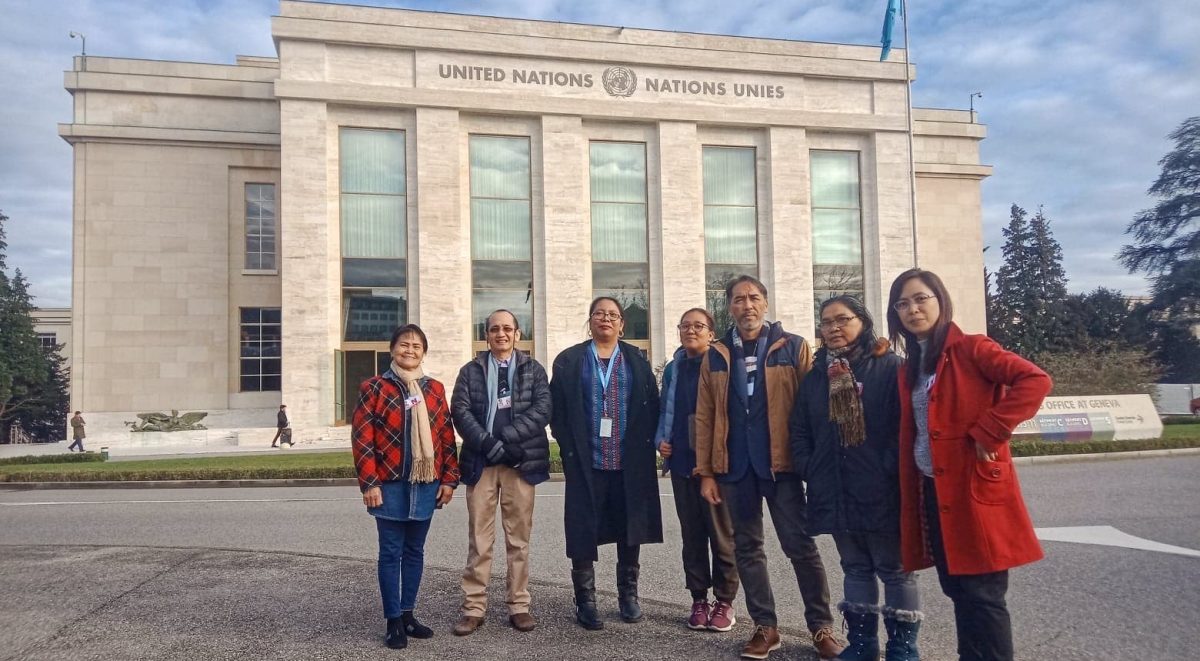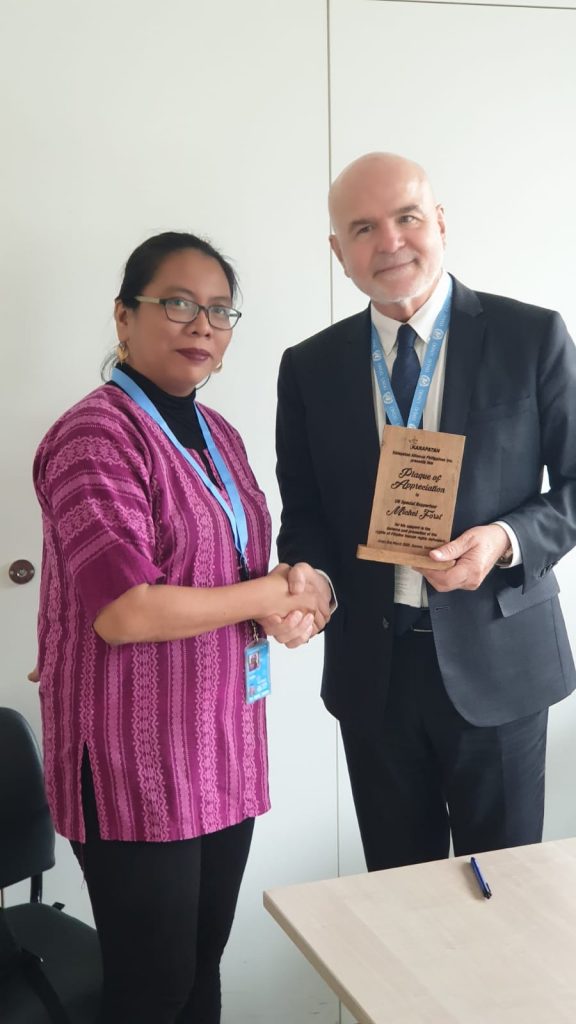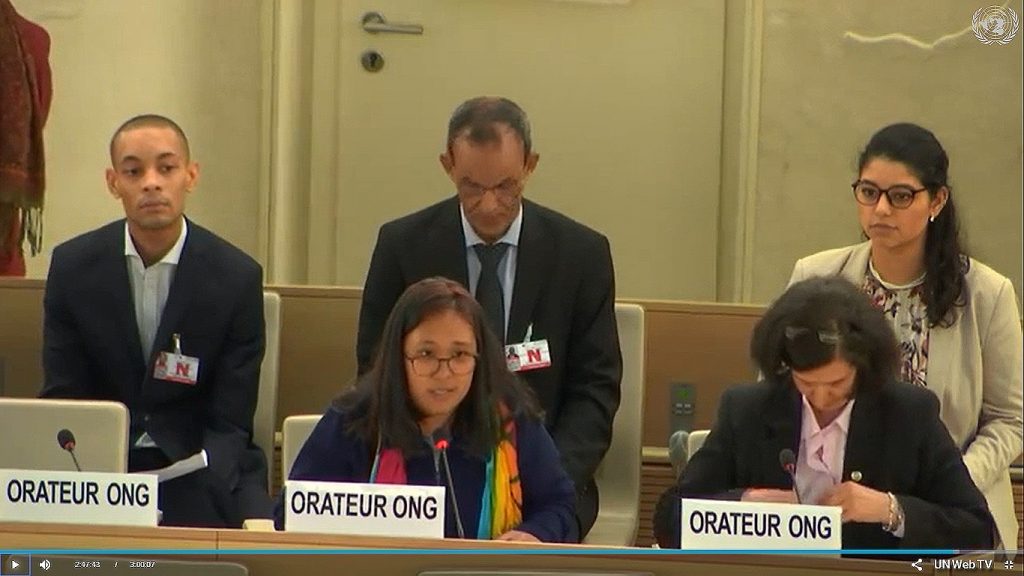
By: Ecumenical Voice for Human Rights and Peace in the Philippines (EcuVoice)
With four oral interventions one after the other in the last few days, a team of Filipino rights defenders further strongly urged the United Nations Human Rights Council (UNHRC) to look into the state of human rights in the Philippines.
The four speakers from the Ecumenical Voice for Human Rights and Peace in the Philippines (EcuVoice) also unanimously supported the reports presented by UN experts in calling for further investigations on rights violations in the country, contrary to the rather confrontational stance employed by the government in the ongoing 43rd UNHRC session here.

EcuVoice delegation co-leader and Karapatan secretary general Cristina Palabay said she welcomes the report of the UN Special Rapporteur on the situation of human rights defenders that noted “wide-ranging and cumulative violation of the rights of defenders.”
“This rings true in my particular case and that of human rights defenders of Karapatan. Twelve of my colleagues were killed by suspected State forces under the current administration, three have been arrested the past four months, and many more are facing trumped up charges. Women defenders face misogynist attacks, driven by discriminatory pronouncements of government officials,” Palabay added.
Johanna dela Cruz of the National Council of Churches of the Philippines said they are also grateful for the report of the UN Special Rapporteur on the situation of human rights defenders and support his conclusions and recommendations.
Dela Cruz said church people’s rights in the Philippines are violated, primarily those “doing their Christian mandate and mission of ministering to the poor and the marginalized. Bishops and Parish priests, particularly from the Iglesia Filipina Independiente (IFI), were red-tagged, harassed by soldiers implicating them as rebels.”
EcuVoice head and International Association of Democratic Lawyers interim president Edre Olalia for his part reported to the UNHRC that in the 44 months of the Duterte administration, at least 48 lawyers including judges and prosecutors have been murdered.
“Human rights lawyers like Ben Ramos as well as lawyers handling drug-related cases continue to be brazenly attacked in various forms. Orchestrated smear campaigns and vilification by red-tagging, labelling and reprisal charges against human rights defenders at every opportunity in different for a continue with impunity,” Olalia said.

The reports bring a total of four the successful oral interventions presented by EcuVoice before the UNHRC.
Earlier in the week, Clemente Bautista of Kalikasan People’s Network for the Environment reported that there are serious challenges to life, security and liberty of environmental defenders in the Philippines, “which redound to transgressions on the rights to a safe, clean, healthy and sustainable environmental of communities, including that of indigenous peoples and peasants.”
“It must be noted that the EcuVoice delegation have welcomed all the UN special rapporteurs’ reports presented thus far, quite different from the bellicose stance of the Philippine government in the ongoing debates,” Olalia said.
EcuVoice is enjoining the UNHRC to ensure that Filipino human rights defenders have access to the UN free from reprisals and provided with safe environments for the exercise of its work.
The group also said it supports the special rapporteurs’ recommendations to enable official visits to countries in conflict situations such as the Philippines.
Download PDF:
Subscribe to the “Voices from the South” newsletter.

Ecumenical Voice for Peace and Human Rights in the Philippines (EcuVoice) is a network of human rights defenders and faith-based institutions working to ensure that human rights violations in the country come to an end.
